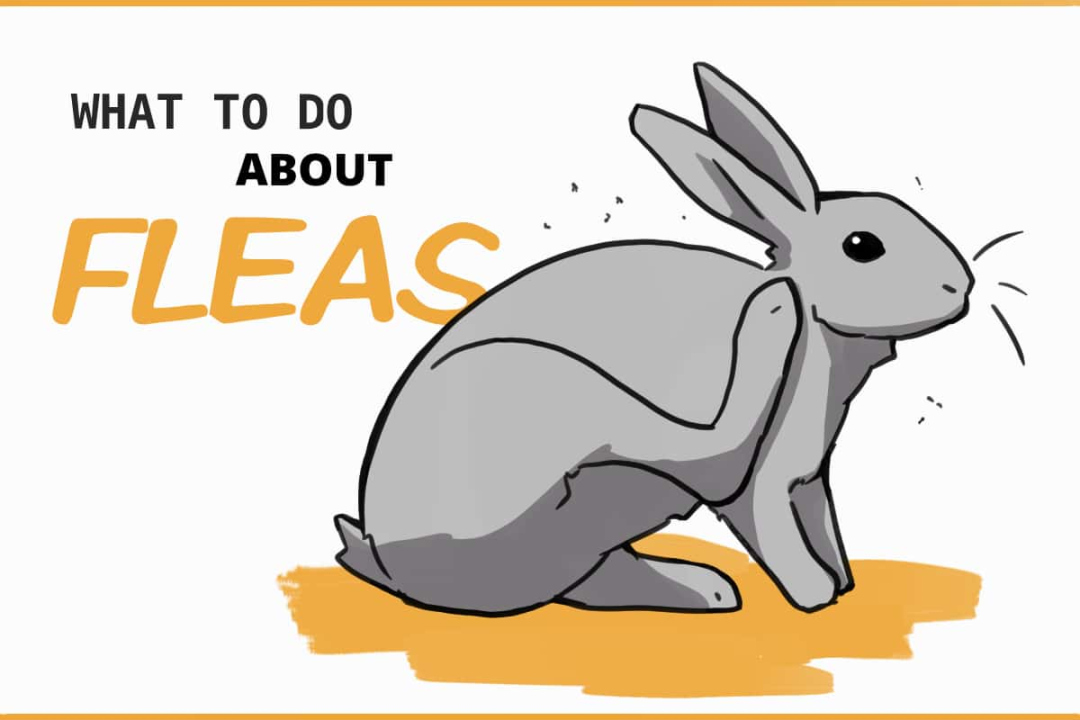How to Treat a Rabbit For Fleas?
Fleas can be a nuisance for rabbits, causing itching, discomfort, and even health issues. It is essential to treat your rabbit for fleas promptly to ensure their well-being. Here are some steps you can follow to effectively treat your rabbit for fleas:

1. Recognizing a Flea Infestation
The first step in treating your rabbit for fleas is to recognize if they have a flea infestation. Look for the following signs:
- Excessive scratching or grooming
- Visible fleas or flea dirt (small black specks resembling pepper)
- Red and irritated skin
- Small scabs or sores
- Thinning fur
2. Isolate and Clean the Rabbit
Once you have identified a flea infestation in your rabbit, it is important to isolate them from other pets to prevent the fleas from spreading. Place your rabbit in a clean and safe environment.
Thoroughly clean the rabbit’s cage, bedding, and any other items they come into contact with. Wash bedding in hot water and dry it on high heat to kill any fleas or eggs. Vacuum the surrounding area to remove any fleas or eggs that may have fallen off the rabbit.
3. Consult a Veterinarian
It is crucial to consult a veterinarian before starting any flea treatment for your rabbit. They can accurately diagnose flea infestation and recommend appropriate treatment options.
Inform the veterinarian about any other medications your rabbit is currently taking or any pre-existing health conditions they may have. The veterinarian will guide you on the best course of action based on your rabbit’s specific needs.
4. Topical Flea Treatment
After consulting with a veterinarian, they may recommend a topical flea treatment specifically designed for rabbits. Follow the instructions provided by the veterinarian or the product manufacturer carefully.
Apply the topical treatment to the back of your rabbit’s neck, as this is an area they cannot easily reach to lick off the medication. Be cautious not to apply the treatment near the rabbit’s eyes or mouth.
5. Flea Comb
Regularly comb your rabbit’s fur with a fine-toothed flea comb to remove any remaining fleas or flea dirt. Start from the head and work your way down, being gentle and thorough.
Dip the comb in soapy water after each stroke to drown the fleas. This will prevent them from crawling back onto your rabbit.
6. Environmental Treatment
Fleas can easily infest the environment, so it is essential to treat your rabbit’s living area to eliminate any remaining fleas and prevent reinfestation:
- Clean the surroundings: Vacuum the area thoroughly and dispose of the vacuum bag immediately to prevent any live fleas from reinfesting.
- Use flea spray: Treat the environment with a rabbit-safe flea spray to kill any remaining fleas or eggs. Follow the instructions on the product carefully.
- Wash bedding: Wash your rabbit’s bedding frequently in hot water to kill any fleas or eggs that might have infested it.
- Preventive measures: Consider using flea prevention products or repellents in the rabbit’s living area to protect them from future infestations.
FAQs
1. Can rabbits get fleas from other pets?
Yes, rabbits can get fleas from other infested pets. It is essential to regularly check all pets for fleas and treat them promptly if an infestation is detected to prevent the fleas from spreading to your rabbit.
2. Can I use flea treatments meant for dogs or cats on my rabbit?
No, it is crucial to use flea treatments specifically designed for rabbits. Rabbits are more sensitive to certain chemicals found in flea treatments meant for other animals, and it can be harmful to their health.
3. How often should I treat my rabbit for fleas?
The frequency of flea treatments will depend on various factors, such as the severity of the infestation, the type of treatment used, and your veterinarian’s recommendation. Follow the instructions provided by your veterinarian or the product manufacturer for the best results.
4. Can I prevent fleas in rabbits?
While it is challenging to completely prevent fleas in rabbits, there are measures you can take to minimize the risk:
- Regularly clean the rabbit’s living area
- Use flea-prevention products or repellents
- Check all pets for fleas and treat them promptly if infested
- Keep your rabbit away from infested areas or wildlife
By following these preventive measures, you can reduce the likelihood of your rabbit getting fleas.
Remember, treating a rabbit for fleas should always be done under the guidance of a veterinarian. They will provide the most appropriate treatment options for your rabbit’s specific needs and ensure their well-being throughout the process.
Related Articles…
Copyright Notice:
Images displayed on this website are not our property, but are procured from the internet. If you hold copyrights to any image and wish for its removal, please get in touch with us.